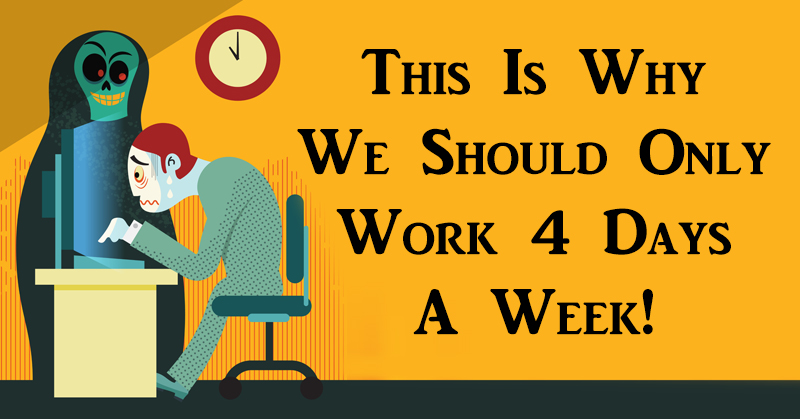Have you ever felt overworked? Chances are, you have. Studies have found that the United States is the most overworked nation in the world. A staggering 85.8% of males and 66.5% of females work more than 40 hours per week. For many of us, being overworked leads to more stress and a lower quality of life. We miss soccer games, dance recitals and family dinners. We end up constantly checking e-mails and becoming disconnected from friends and family members. Being overworked can take a toll on our health and our relationships.

Unfortunately, staying at your desk longer doesn’t necessarily mean you’re getting more work done. After a certain number of hours, people get tired and become distracted. According to K. Anders Ericsson, an expert on the psychology of work, shortening the work week can lead to greater productivity and increased employee morale.
Overworking Leads To Decreased Productivity
Ericsson’s studies have shown when people are overworked, output stalls and performance suffers. After their productivity reaches the highest point, it begins to fall.
According to Ericsson, “If you’re pushing people well beyond the time they can really concentrate maximally, you’re very likely to get them to acquire some bad habits. What’s worse, those bad habits could end up spilling into the time people are normally productive.”

Ericsson found that managers who shortened the work week for their employees found significant returns on their investment in terms of output and worker retention, along with personal and professional happiness.
What About The School Week?
A four-day school week was introduced for 4th and 5th graders in Colorado, as an experiment. The study showed increases in test scores in the students who attended for just four days, compared to those who attended school for all five days. Math scores went up by 12% and ready scores increased by 6%.
“Looking at most of the school system, most of the students are sitting there for maybe six, seven hours a day,” Ericsson said. “And I think the idea here that they’ll by fully concentrated during that entire period is unreasonable.”

Benefits Of Shortening The Work Week
Some evidence suggests that the solution may not necessarily be in working fewer hours, but in how the company allocates time. In 2008, former Utah governor Jon Huntsman implemented a plan to reorganize the work week. Nearly 75% of state employees switched from working five eight-hour days to working four 10-hour days.
The extra day off saved public resources that were normally used to heat, cool and power the buildings. The change also produced increased worker morale. Employees enjoyed the extra day off and the easier commutes, because they were no longer driving through rush-hour traffic.
The results of Ericsson’s studies suggest that even a simple redistribution of work time can end up having enormous benefits for both companies and their employees. Shortening the work week can lead to less stress, greater employee morale and higher productivity levels.
Sources:
Bright Side
Credit Loan
Business Insider
MIT Press Journals


